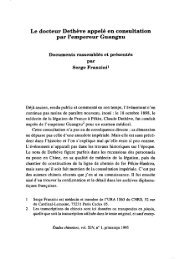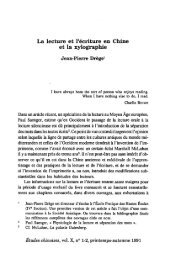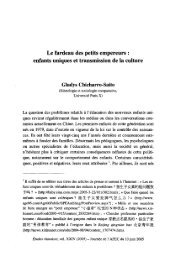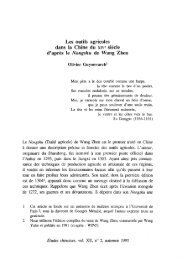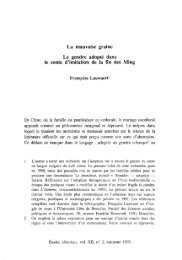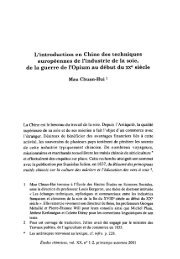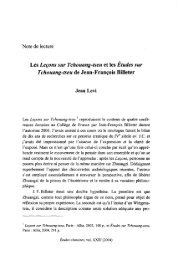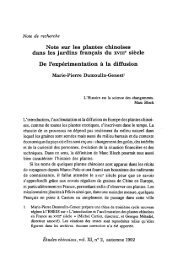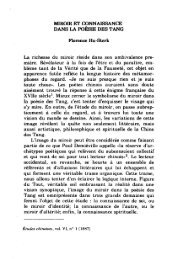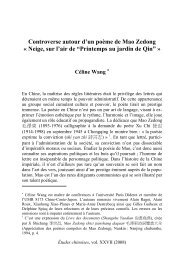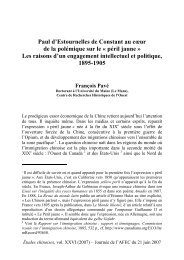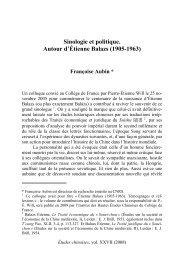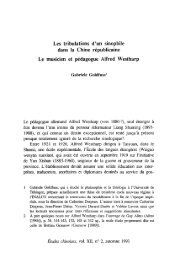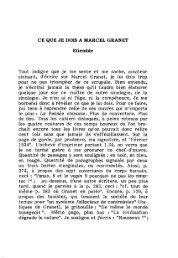You also want an ePaper? Increase the reach of your titles
YUMPU automatically turns print PDFs into web optimized ePapers that Google loves.
Comptes rendus<br />
addition historians of China will find this an indispensable guide to both<br />
issues and literature on that country's peasantry.<br />
The greatest strength of Bianco's research is his relentless questioning<br />
of arguments about the Chinese peasantry that seem to him, and subsequently<br />
to others, to fly in the face of peasant expérience elsewhere in<br />
the world. With superb control of both primary and secondary sources, in a<br />
scholarly and critical way Bianco has always been prepared to challenge<br />
received wisdom. Nowhere is this clearer than in Chapter 11 ("Peasant<br />
responses to Chinese Communist Party Mobilization Policies, 1937-1945")<br />
of this collection where Bianco takes issue with the more starry eyed of<br />
académie commentary which has long argued that during the War of Résistance<br />
to Japan the Chinese Communist Party (hereafter CCP) not only<br />
successfully mobilized peasant support behind a moderate séries of nationalist<br />
policies but also used that mobilization as the foundation for its<br />
subséquent conquest of the state in 1949. As Bianco argues hère and elsewhere,<br />
the War of Résistance to Japan was in many ways a peasant révolution<br />
in the absence of the peasants. Moreover, there is little évidence of<br />
peasant support for the political changes being wrought by the CCP, or at<br />
least without doing considérable damage to the concept of 'peasant support'.<br />
From the start Bianco's concern has been to examine peasant<br />
movements and peasant activism, especially those that occurred without<br />
the involvement of the CCP. During the second half of the twentieth century,<br />
this was of course no easy task for any académie not least because of<br />
the attitude of the Chinese state to the topic of peasant révolution, and also<br />
at least partly in resuit because of the attitudes of other non-Communist<br />
governments to that of the People's Republic of China. Though the peasantry<br />
became glorified as a driving force of the Chinese révolution by the<br />
CCP, Bianco argues that the peasantry is predisposed to be reactive and<br />
localist, rather than having the capacity to universalise their political actions,<br />
let alone being in any sensé drivers of a modernising project. Bianco's<br />
Chinese peasants are more likely to be inherently conservative and<br />
reactionary, as were their European pre-modern counterparts.<br />
546



